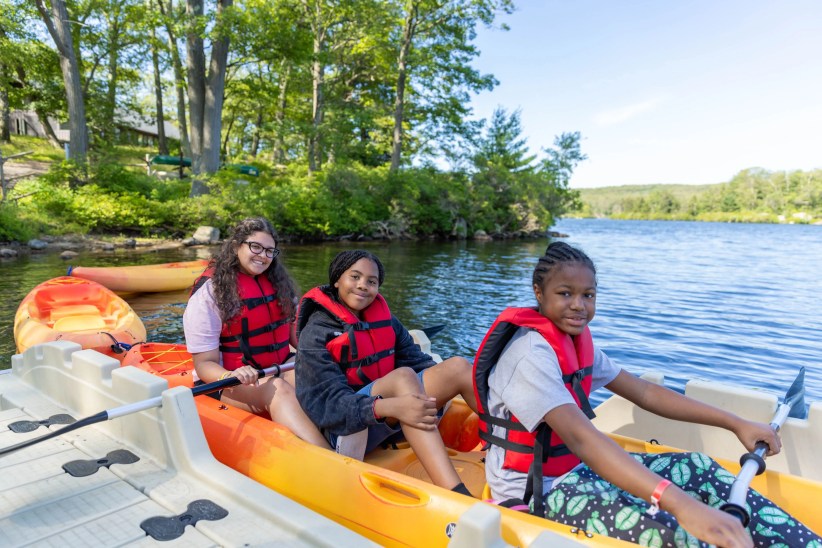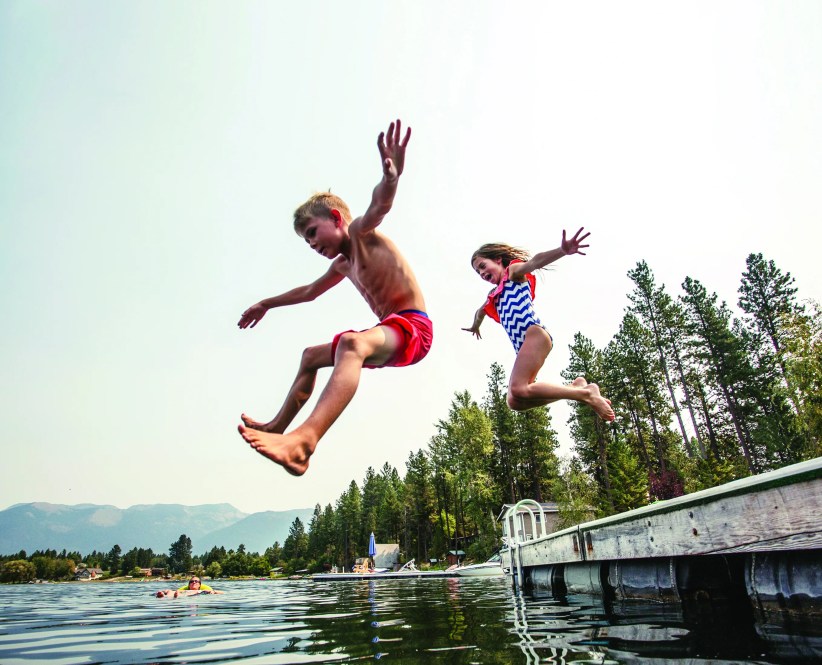
Is your high school- or college-aged child considering a summer job or internship? There is no other job that can better prepare them with the life skills that employers are looking for than working at a summer camp. While internships may sound good, the hands on experience a young adult gains at camp is immeasurable. According to the Partnership for 21st Century Learning, a national not for profit organization started by leaders in the business and education fields, the essential skills and knowledge that children need to succeed in work and life are problem solving, communication, collaboration, and creativity—all skills, along with so many others, that young people gain while working at camp.
Responsibility & Leadership
“What other job gives a young person so much responsibility,” says Christie Ko, executive director of the Fiver Children’s Foundation. Greer Bizzell-Hatcher, a 17-year-old who worked as a bus and group counselor for Woodmont Day Camp in New City, NY, last summer adds: “As a group counselor, my two co-counselors and I were responsible for 10 second grade girls. My group was constantly moving from arts and crafts and cooking to softball and swimming. Every day consisted of tasks like applying sunscreen and helping with bathing suit changes to resolving conflicts within the group.” Alicia Skovera, director of camping and year-round programs for the Fresh Air Fund, comments: “Camp counselors practice putting the needs of other people ahead of their own, which is often challenging for young people.”
Problem Solving
“Camp counselors are problem solving all day long at camp,” says Beverly McEntarfer, director of Camp Homeward Bound. “If the weather changes during an outdoor activity or you planned an activity and it’s not clicking with the campers, you have to think on your feet to fit the needs of the moment.” Skovera feels that gaining problem solving skills at camp is more important than ever. “Millennials are growing up in a technological world. Camp is a place where they can’t just get the answers at their fingertips immediately—they have to think it through. By looking into situations critically, they are able to develop problem solving skills.”
Work Ethic
Ko feels that work ethic is one of the most important skills you can gain working at a camp. “Young people have been protected and so supported by parents and adults who are all well-meaning, but don’t allow for the opportunity to work hard,” she says. “There is no other place that young people work harder than at camp. You are up late and work long hours but the reward is incredible. But you have to put in the work because when you don’t, it’s obvious. Camp is a wonderful environment to be able to adjust and learn from that.”
[gravityform id=”17″ title=”false” description=”false” ajax=”true”]
Communications & Collaboration
“Camp gives young people the opportunity to work with people who aren’t always like minded. They may be diverse in look, beliefs, attitudes, or religion, but a community is created at camp, which is a skill they will need as an adult and camp gives them that testing ground,” Skovera says. While Ko adds: “Everyone will have to work with people in future employment that they don’t necessarily share the same perspective with but you have to figure out how to work together. There is no better place to practice these skills then in the summer camp environment.” Ko also feels that camp counselors are always communicating with others and you can truly hone your communication skills at camp. “At camp, you learn to speak with supervisors and communicate with various age groups,” she says. “These skills are transferable in any line of work you may go into.” As a bus counselor, Greer was responsible for the pick- up and drop-off of about 20 campers ages 3-12. “Each morning began with a text or a call to each child’s parent or babysitter to ensure they were at the bus stop at the allotted time. I also reached out to them when the bus was early or late for drop-off,” he explains. “Once all campers were safely dropped off, I called the camp to report that the route had finished and gave a summary of any issues or new traffic patterns. I believe the constant communication I had with parents and the camp leadership had a formative influence on my current transition into adulthood. I’m much more comfortable communicating with my teachers this year which is something that previously made me anxious.”
Gain Mentors
“The camp leadership’s job is youth development. Camp directors invest in their staff in the same way they do for their campers,” McEntarfer says. “They want to see young people find their voice, develop leadership skills and leave camp thinking there is nothing they can’t try in life.” Ko adds: “The camp environment is a congenial community that gives young people a chance to develop a network in camp and beyond. Camp professionals care about children and want the staff to land on their feet and to be successful.”
Personal Growth
McEntarfer explains that working at camp allows a young person to experience personal growth. “Camp takes people out of their comfort zone and helps them find strengths they didn’t know they had,” she says. “Camp helps young people mature, gain confidence, and problem solve.” Skovera agrees: “Counselors gain soft skills like developing empathy and managing feelings by helping children, but in turn, it effects their own growth. At camp, we create a physically and emotionally safe space for growth and leadership to happen and accelerate the skill building that would take so much longer in a 9-5 job.” Greer feels that her daily interactions with children of all ages last summer allowed her to self-reflect on her place in the world. “Regardless of how difficult it was at times, I felt that my campers taught me what it means to be a role model and to admire someone for their best qualities,” she says. “They challenged me to be my best self and for that I am truly grateful.”



















